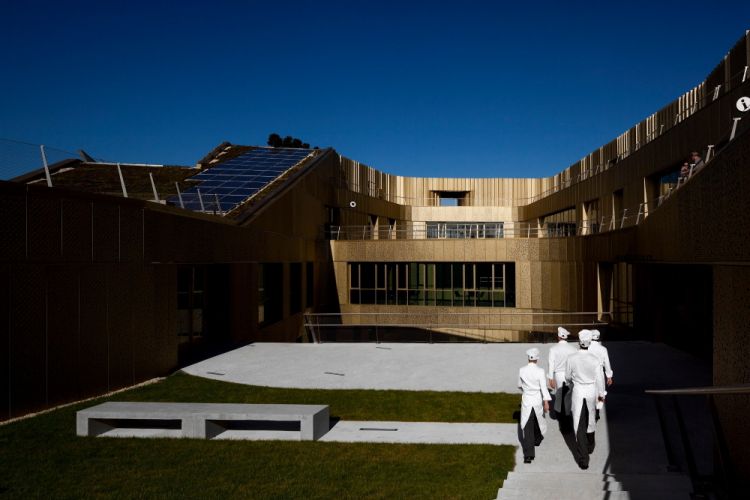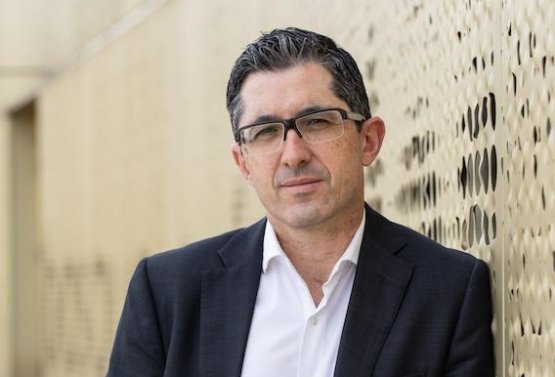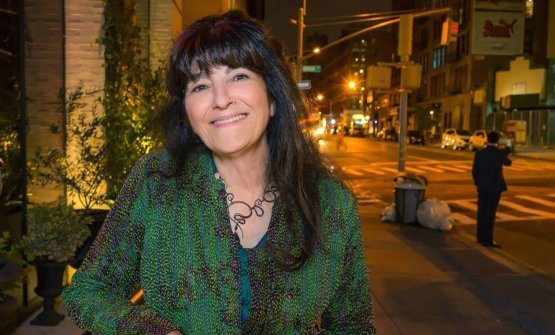The Basque Culinary Center in San Sebastián, in the Basque Country, is one of the most important institutions in the world for the research, study and popularisation of gastronomy, cooking and diet. The Faculty of Gastronomic Sciences - founded in September 2011 by eight of the most important Basque chefs in partnership with the University of Mondragon – trains fine dining professionals and involves in its curriculum some of the most prestigious protagonists of the international culinary scene.
We've often spoked about them, especially to report on the Basque Culinary World Prize, created by the Basque Culinary Centre and the Basque Government to support chefs who work to transform society through gastronomy. The award was given to chefs like Australian Jock Zonfrillo, Colombian Leonor Espinosa, Venezuelan María Fernanda Di Giacobbe, Spanish-American José Andrés.
In this case we talk about the BCC for a new project which they recently presented: the creation of a master dedicated to culinary communication and journalism. The first edition will debut on the 4th of October 2021 and registrations are open on the website.

The Basque Culinary Center
With this project the Basque Culinary Center confirms its aim for innovation: in the face of the constantly increasing demand for professionals specialised in journalism and communication in the culinary industry, this master aims to offer the necessary skills to design, produce and promote culinary content and events starting from a global and contemporary perspective, offering a modern and complete vision of culinary journalism on an international scale.
Joxe Mari Aizega, general director of the BCC, explains to Identità Golose the new project: «Since the beginning of our history we've always had the goal of actively promoting specialisation and training in the culinary industry. We're very happy to launch this master, which wants to address the needs of communication and journalism professionals who want to specialise in the creation of culinary content. We believe it is crucial to have specialised professionals who can work in a strategic way inside the current ecosystem of culinary communication, with a multi-channel approach and an international perspective, so as to improve and further widen the horizons of our sector».

The coordinator of the new-born master is a journalist we've often met in international culinary events: Rafael Tonon, born in 1982 in Brazil and now based in Portugal, is a very experienced food writer who has collaborated and collaborates with magazines like Eater, Fine Dining Lovers, Vice, Elle, GQ. His new book As revoluções da comida: o impacto de nossas escolhas à mesa (Food revolutions: the impact of our food choices) is soon to be out. We will talk about it in the coming weeks. Today, instead, we ask him to tell us about the spirit and goals of this new professional challenge, in which he will act as teacher, instead of journalist as usual.
«I have always thought – says Tonon – that sooner or later I could have become a teacher, but I never thought it would happen so soon. As the coordinator of this master, I will indeed give various lessons and it's a project I'm thrilled about, I'm very happy to be given this opportunity».
What are the priorities for this master you were asked to direct by the Basque Culinary Center?
In our conversations it was immediately very clear that there was a desire for this project to have an international scale: we want to offer students a global vision of what is happening in the culinary sector. The communication media covering these topics have changed dramatically: we've moved from publishing recipes with which to have fun during the weekend, to very detailed reports on unsuitable conduct and even aggressions inside professional kitchens. We want our students to be able to treat this industry by starting from a wider perspective.
How will you structure the master?
It's based on four different modules. The first will focus on anthropology, sociology and on some crucial foundations for the training of a professional who wants to create content on food: for instance, there will be a masterclass with Harold McGee to speak of the chemistry of food, we will offer wine tasting classes, we will show how a restaurant works from within, and much more. The second module will focus on new approaches to culinary journalism and on the new ecosystems that are appearing: for instance, with influencers, but also chefs who are now content creators. I insisted there's a need to report and analyse the new figures that are emerging in the culinary scene, so as to point out how important it is to portray different voices and sensitivities, different backgrounds, and tell interesting and engaging stories. The third module will cover food communication in the digital age, from the new narrative formats to food design, with an eye on how to create and structure new publications. The last will be focused on communication and strategies in the food industry: social media and PR management, creating a communication plan, creating and managing culinary events.
What will be the challenges of food journalism in the near future, in your opinion?
We must prove that food is a very important theme in terms of politics, society and economy. What we eat has a strong impact on the surrounding world, but I don't think we're still sufficiently aware of the impact of our choices on the food industry and therefore on climate change. As communication professionals we should all look at these topics with greater attention, not just taking care of the changes that happen inside our restaurant. Food is much more than what happens on the table and journalists who work with these topics must clearly feel their responsibility in showing this.
Communication and journalism: as you said yourself, in the international culinary scene there are more and more figures - influencers, chefs, brands or restaurants – that communicate in an effective and engaging way. But is there still a difference between being very good at communicating yourself and your interests and being a journalist? Is it still necessary and important to have a detailed and impartial vision of food journalism?
Yes, I believe so and I agree with your analysis. Journalism is part of communication, but it's not just communication. The food scene has changed dramatically: chefs are now content creators, there are new people who have stood out thanks to social media, and then there's bloggers, YouTubers and most recently authors of newsletters of every kind who have contributed in crowding this market. I think this is positive in that it allows us to listen to varied voices discussing food-related topics, but journalism is something else. Our raw materials are information, impartiality, and truthfulness. Most of all, in this last period our work was much more complex and important: we want to train new (as well as established) journalists so that they can win all these challenges.

Who are the food writers you'll quote the most during your master?
I think we will have a great team. We're still working on it so as to build a real Dream Team, in which we will involve also many food writers who have influenced us: like Ruth Reichl, the journalist who changed my perspective on food and cooking, who will be hold one of our masterclasses. But there are many other great signatures who have changed our way of conceiving gastronomic communication, from Anthony Bourdain to David Foster Wallace, from Hervé This to François Simon, and we will try to introduce them to our students. Finally, I think there are many young, talented and competent journalists who will teach in this master and will be capable of inspiring the students with their stories.
The master at BCC will start in October 2021 and will include six months of online classes, one month of in person classes and three months of internship, totalling 1500 hours of lessons. For further information and details click here.
Translated into English by Slawka G. Scarso